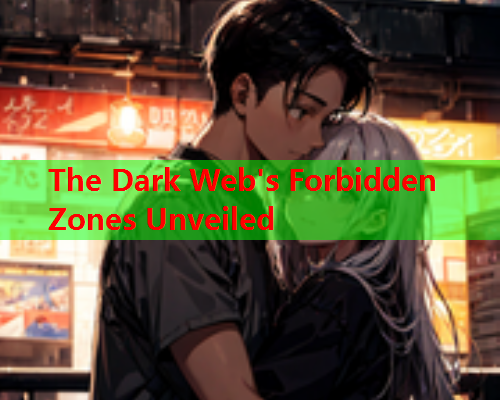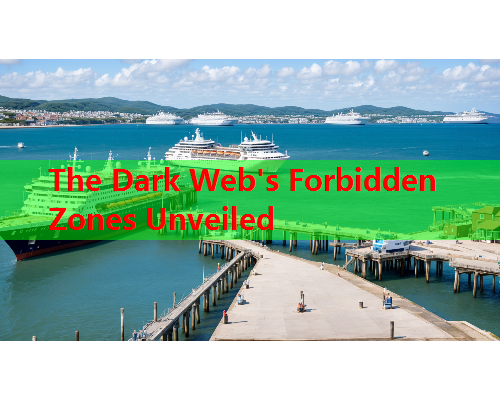The Dark Web's Forbidden Zones Unveiled
- 暗网禁地官网
- 2024-11-05
- 228
Introduction

Understanding the Dark Web
2.1 What is the Dark Web?
2.2 The Structure of the Internet
Accessing the Dark Web

3.1 The Role of Tor and Other Tools
The Nature of Content on the Dark Web
4.1 Legal vs. Illegal Activities
4.2 Types of Websites
The Dark Web and Cybersecurity
5.1 Risks and Threats
5.2 Law Enforcement Challenges
Case Studies of Notorious Dark Web Sites
6.1 Silk Road and Its Legacy
6.2 Recent Marketplaces and Shutdowns
The Future of the Dark Web
Conclusion
Further Reading and Resources
1. Introduction
The dark web, often portrayed as a shadowy underbelly of the internet, is a complex ecosystem that serves various purposes, both benign and malicious. This article aims to unveil the intricacies of the dark web, exploring its structure, accessibility, content, and the ongoing battle between law enforcement and cybercriminals.
2. Understanding the Dark Web
2.1 What is the Dark Web?
The dark web refers to a portion of the internet that is not indexed by traditional search engines and requires specific software to access, primarily Tor (The Onion Router). It is often associated with illegal activities, but it also provides a platform for free speech, privacy, and anonymity.
2.2 The Structure of the Internet
To understand the dark web, it's essential to visualize the internet as an iceberg:
Surface Web: This is what most people use daily—websites indexed by search engines like Google.
Deep Web: This includes content not indexed by search engines, such as databases, private corporate sites, and academic resources.
Dark Web: A small segment of the deep web that requires special tools to access.
3. Accessing the Dark Web
3.1 The Role of Tor and Other Tools
Tor is a free software that enables anonymous communication on the internet by routing traffic through various volunteer-operated servers worldwide, obscuring users' locations and usage patterns. Other tools like I2P (Invisible Internet Project) also facilitate access to this hidden part of the web.
4. The Nature of Content on the Dark Web
4.1 Legal vs. Illegal Activities
While many associate the dark web with crime—such as drug trafficking, weapons sales, and illegal pornography—it's important to note that not all activities are illicit. For instance:
Whistleblowers use it to share sensitive information without fear of reprisal.
Activists in oppressive regimes rely on it for secure communication.
4.2 Types of Websites
Websites on the dark web can be categorized into several types:
Marketplaces: Platforms for buying illegal goods.
Forums: Spaces for discussion on various topics.
File Sharing Sites: For sharing files anonymously.
Blogs: Personal blogs discussing various issues.
5. The Dark Web and Cybersecurity
5.1 Risks and Threats
The dark web poses significant risks not just for users engaging in illegal activities but also for unsuspecting individuals who may fall victim to scams or data breaches.
5.2 Law Enforcement Challenges
Law enforcement agencies face considerable challenges in policing the dark web due to its anonymous nature and global reach. Operations often require international cooperation and advanced cybersecurity techniques.
6. Case Studies of Notorious Dark Web Sites
6.1 Silk Road and Its Legacy
Silk Road was one of the first major marketplaces on the dark web, allowing users to buy drugs using Bitcoin anonymously until its shutdown by law enforcement in 2013.
6.2 Recent Marketplaces and Shutdowns
Following Silk Road's demise, many other marketplaces emerged, such as AlphaBay and Hansa Market, which were eventually shut down in coordinated law enforcement operations.
7. The Future of the Dark Web
As technology evolves, so does the dark web landscape. With increasing awareness among law enforcement agencies and advancements in tracking technology, future developments may lead to more significant crackdowns on illegal activities while still preserving spaces for legitimate uses.
8. Conclusion
The dark web remains a multifaceted area of the internet that serves both harmful and beneficial purposes. Understanding its complexities is crucial for anyone interested in cybersecurity, privacy rights, or digital communication.
9. Further Reading and Resources
"The Truth About The Dark Web" – IMF F&D
"The Dark Web: Its Secrets Revealed" – University of Miami
"Dark Web Facts Revealed" – Avast
"Decoding the Internet's Forbidden Zone" – Wallarm
"The Dark Web Unveiled" – Life as a Butterfly
This comprehensive overview provides insights into one of the internet's most enigmatic realms, encouraging readers to explore further while remaining aware of both its potential risks and benefits.
本文由小海于2024-11-05发表在暗网禁地,如有疑问,请联系我们。
本文链接:https://shangzhaisheji.com/guanwang/1968.html
















